Embroidery with knots is considered a no-no for some reason. They can cause bumps and bulk where you don’t want it. Do you use knots? You’re not supposed to, we are told. There are some projects that can’t avoid knots, but I’ve found that most can, and even withstand laundering without them. To avoid knots, use a waste knot – here’s how…
A waste knot is basically a knot on the FRONT of the fabric, which you remove when you “catch up” to it.
Tie a regular knot at the end of your embroidery thread. Go down into the fabric from the front, a couple inches away from where you intend to begin stitching, so that when you begin, you are traveling in the direction of the knot. Make sure you’re stitching over the “waste thread” on the back as you travel towards the knot. When you catch up with the knot, pull it firmly and clip the thread right above the surface of your fabric. The thread will spring behind the fabric, and then you keep on stitching.
The friction between the thread, the fabric, and the “waste thread” that you have overstitched will keep your thread in place without a knot. It’s easy, and it works! Give it a try!

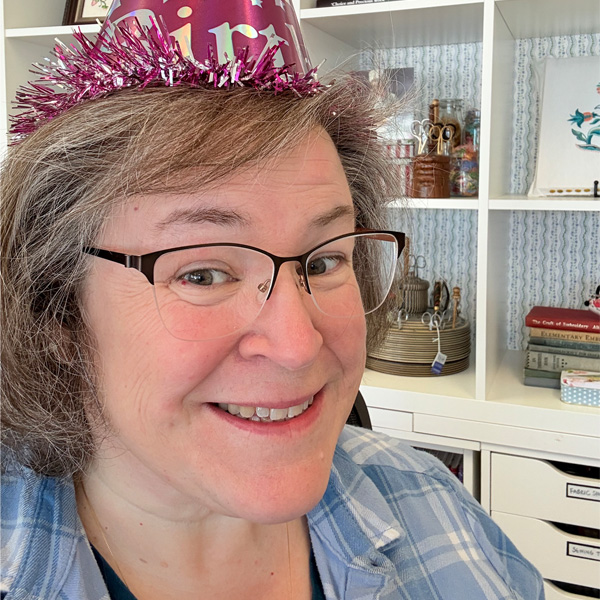

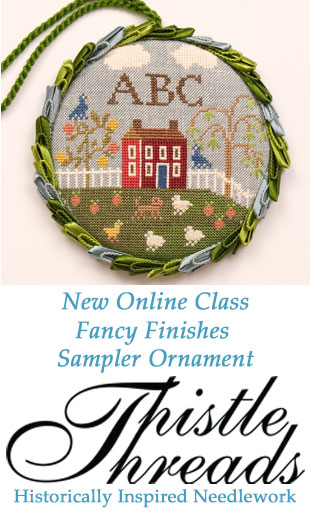
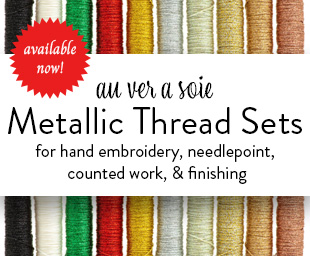
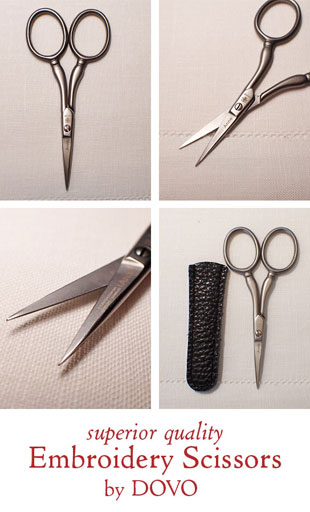
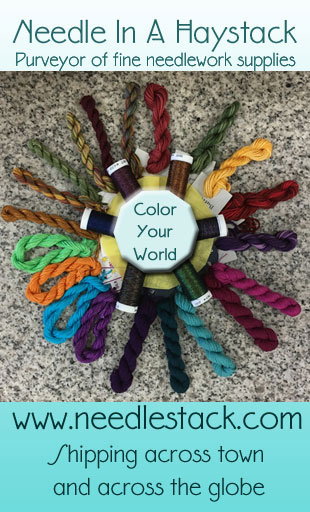
Thank you for this! I have been searching the internet all evening for tutorials on hand embroidery, and FINALLY stumbled upon your site, which has held the answers to ALL of my questions! I was trying to find a way to secure stitches without ugly knots on some towels I’m making for Christmas gifts, and now I know! I am also loving your video library….what a great resource!
Mary, I have to give up on this notion that I can NEVER have knots on the back of my work.
I’m thinking there must be a different rule of thumb for those working simple needlework pieces such as quilt blocks and tea towels, as opposed to needle art pieces like Margaret’s “Enchanted Spring” and alike.
Being so new to this, I’m still working on my first pieces, vintage Fairway quilt blocks. For the most part I’m using Stem Stitch, Backstitch, Lazy Daisy, and French Knots.
It’s no problem hiding the ends of my threads in the stem and backstitch areas. But when I try to anchor the beginning and end of my thread to all of these stand alone Lazy Daisy and French Knot stitches, oy!
I end up with such a mess of thread wrapped around and around the backs of those stitches it looks awful! And still, with all those humps and bumps of wrapped thread, the stitches aren’t anchored tightly, so the daisies and their centers are loose and floppy looking. Not attractive!
The stitches look so much better and the back looks so much neater if I use tiny tight knots on areas that have a very short run of thread being used.
Is it always naughty to not knot? Methinks I can not not knot! :p
J.Mosley
Funny!
Instead of a knot, on items that are going to be laundered, I use two small anchoring stitches that are worked perpendicular to each other, and usually over one thread of the fabric (or splitting a thread, depending on the weave of the fabric). Then I stitch over the area. If I’m working single stitches like French knots or daisy stitch, I work other parts of the design first, and then I weave my thread under the other stitches before starting the French knot or daisy.
Then, on the other hand, there are just times when you HAVE to knot, so don’t feel like you cannot knot if you must knot!
Best of luck!
Thank you!! I have read several instruction on how to waste knot. I was so confused because somehow nobody explicitly told me that the knot goes IN FRONT. Duh! Why didn't I figure that out. Anyway, you have helped me ALOT.
I am so confused is there a video that can show me how to starte and stop.
I just started Blackwork this summer, one great revelation was the waste knot – only that I’ve been doing it all wrong and my project got undone (luckily it was a small one for starters). Thanks to the advise given on the Needle’n Thread web-site I finally got it right. By the way, does anybody know, it Lesley Wilkins still has a web-site? I love her work but I can’t find anything in the internet. Greetings, Chris
I do not understand these directions…I seem to be the more of a visual type individual. Is there any way you could post a video to show how this is done.
Thanks
Lorrie
P.S. This is a great site for beginners 🙂
Now this doesn’t sound so scary as anchoring stitches. At least I’ll know the knot is there at first. I guess I’ve had one too many projects come apart on me, so I’m gun-shy, but this method has a built in security blanket! I’ll try this as soon as I finish up my ongoing projects!